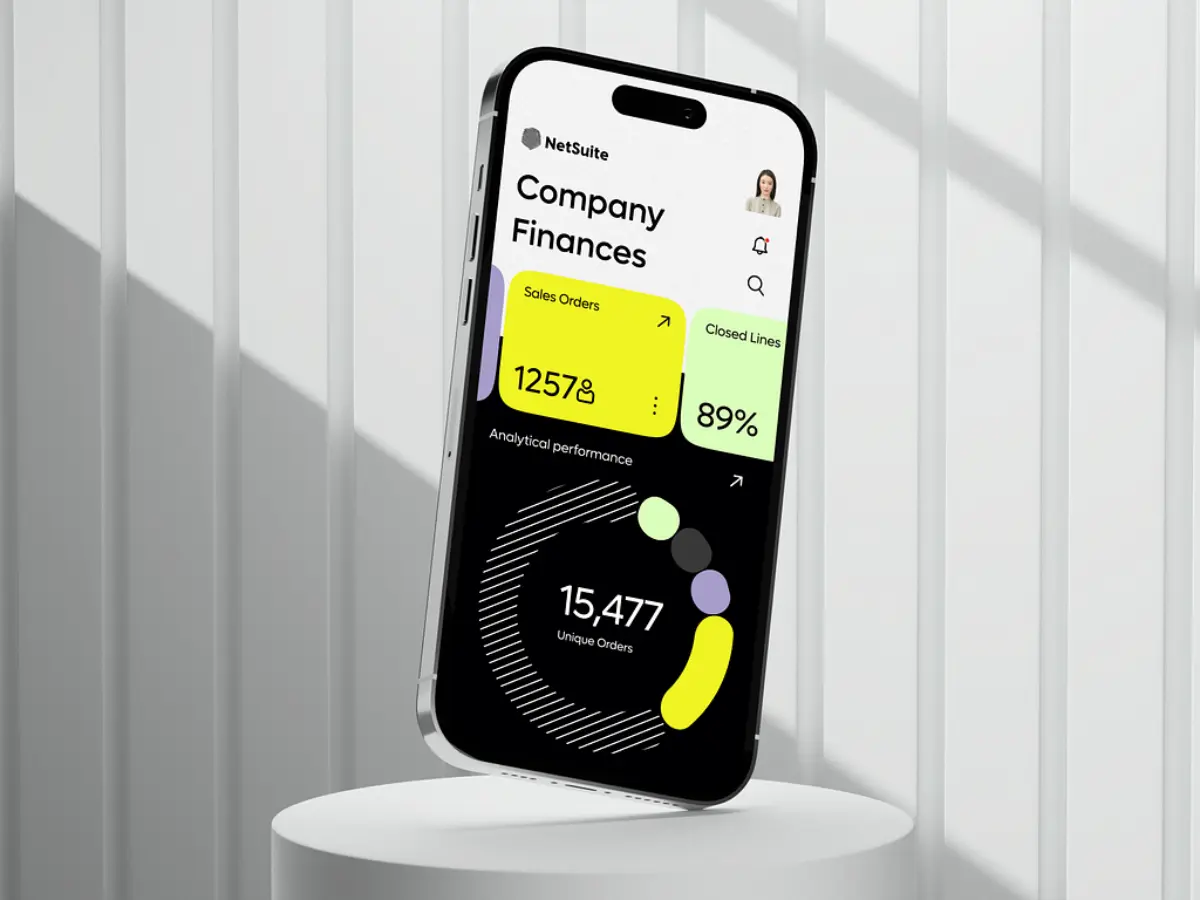Exploring RFID Healthcare Solutions: An In-Depth Overview


In today’s rapidly evolving healthcare landscape, technological innovations drive profound changes. One such innovation making significant waves is Radio-Frequency Identification or RFID. If you’re a medical professional or part of an organization in the health sector, you’ll want to pay close attention. This advanced technology is reshaping how to deliver patient care, manage inventory, and ensure safety within healthcare facilities. In this article, we explore RFID healthcare development, starting with an overview of what it is, how it’s impacting the industry, and its noticeable applications.
In healthcare, RFID stands for Radio-Frequency Identification, an advanced technology that uses radio waves to track objects and people precisely. Imagine it as an upgraded version of traditional barcodes with remarkable advantages.

What is RFID in Healthcare?
Detecting RFID tags does not require direct visibility, whereas barcodes demand a clear line of sight for scanning. This quality makes RFID incredibly valuable in bustling and intricate healthcare environments. In simpler terms, RFID enables healthcare professionals to effortlessly keep tabs on various items and individuals, even when they’re not in plain sight. This innovation has transformed how healthcare operates, boosting efficiency and patient care.
1. Enhanced Patient Safety
Patient safety is one of the most compelling advantages of RFID healthcare technology. Hospitals can avoid potentially disastrous circumstances such as patient misidentification or illegal movement within the facility by utilizing RFID’s real-time tracking capabilities. This upside results in a considerable decrease in medical errors and an overall improvement in patient safety. Furthermore, RFID aids in the tracking of medical equipment and devices, reducing the possibility of leaving them within patients following surgical procedures.
2. Streamlined Inventory Management
RFID serves as a powerful tool for inventory management in healthcare. It provides continuous, real-time insights into inventory levels, substantially reducing the chances of stock deficiencies or overstocking. RFID tags can swiftly identify expired or recalled pharmaceuticals and medical devices, facilitating their prompt removal from circulation and safeguarding patient well-being. This accuracy in asset tracking enhances patient care and optimizes inventory management efficiency.
3. Cost Savings
Manual inventory checks and the time-consuming search for equipment are time-consuming procedures that RFID dramatically reduces. Because RFID reduces the resources required for these manual tasks, healthcare workers may redirect their attention toward patient care. Moreover, healthcare RFID solutions reduce the costs of lost or missing equipment. They improve efficient fund usage and cost-effectiveness by reducing overstocking and stockouts.
4. Improved Patient Workflow Management
This advancement empowers healthcare providers with precise patient workflow management capabilities. It furnishes real-time data on the whereabouts of patients, staff, and crucial resources, leading to more streamlined patient flows and reduced bottlenecks. The result is enhanced patient satisfaction, shorter wait times, and optimized allocation of resources. In IoT-based personal healthcare within innovative healthcare spaces, RFID further augments patient experiences and healthcare delivery.
5. Unparalleled Data Accuracy
Precision is paramount in healthcare, and RFID devices deliver on this front. Unlike manual or barcode-based systems, this advancement does not rely on line-of-sight for data capture. This feature translates to a substantial reduction in the margin of human error. High data accuracy underpins superior decision-making processes, formulating more effective treatment strategies and ultimately optimizing patient outcomes.
1. Privacy and Security Concerns
In the healthcare realm, safeguarding patient data and ensuring privacy is paramount. Radio-frequency Identification introduces complexities, including the risk of counterfeiting sensitive data within unencrypted tags and potential unauthorized access. These concerns raise legal questions and require robust encryption mechanisms and data governance frameworks to ensure patient trust.
2. Technological Limitations
EMI (electromagnetic interference) from RFID wireless transmissions can disrupt critical medical equipment, posing a risk to patient safety. RFID’s accuracy and reliability also face challenges, demanding the development of robust systems and seamless integration with existing healthcare infrastructure.
3. Organizational and Financial Hurdles
The initial investment in RFID can be substantial. Beyond tags and readers, expenses include middleware, databases, and ongoing maintenance. Overcoming these hurdles entails securing buy-in, providing training, and optimizing processes. Careful financial planning is essential to realize RFID’s long-term benefits.
Find out more insightful articles about the Healthcare Industry:

Things you can track with RFID in Healthcare
RFID healthcare tagging revolutionizes the monitoring and tracing of pharmaceuticals along their entire journey, from production and distribution to final administration. Within each medication package lies a vital RFID tag housing critical details like the drug’s name, dosage, expiration date, and batch number. This technology empowers healthcare professionals to effortlessly verify the genuineness and quality of medications, ensuring precise and timely administration to patients. The integration of RFID-based medication tracking equips healthcare facilities with the tools to streamline inventory management, preempt medication errors, and fortify the defense against counterfeit drugs infiltrating the supply chain.
Ensuring patient safety is paramount within hospitals, and Radio-Frequency ID tracking provides a robust solution through smart wristbands containing passive RFID tags. This feature strengthens safety protocols, reduces errors, and enhances patient care.
Furthermore, this innovation seamlessly integrates with existing healthcare information systems, creating a cohesive approach that minimizes errors in patient handling and ensures the accurate retrieval of medical data. Beyond patient identification, RFID applications in healthcare extend to optimizing surgical procedures by confirming that the correct patient receives the intended treatment.
With real-time patient tracking enabled by RFID, visibility significantly improves throughout the patient’s journey. This trait leads to reduced wait times, enhanced patient flow, and optimized resource allocation within the hospital. Additionally, this technology plays a vital role in monitoring elderly patients with chronic diseases in the comfort of their homes and tracking the movement of visitors, staff, and patients, facilitating the identification and containment of infectious diseases.
The RFID system has transformed the management of various medical devices, from surgical tools to diagnostic equipment. It offers real-time tracking and monitoring, significantly reducing the risk of misplacement and optimizing inventory control procedures.
Each piece of medical equipment now comes equipped with an RFID tag containing essential information, including equipment type, current location, maintenance history, and calibration data. This characteristic empowers healthcare providers to quickly locate, manage, and maintain equipment, saving time and effort devoted to manual tracking.
Incorporating RFID into medical equipment management processes minimizes inventory discrepancies, enhances equipment maintenance, and ensures adherence to strict protocols for handling and disposal.
In summary, RFID healthcare development enhances patient safety, optimizes inventory management, and improves patient workflow. Despite challenges like privacy concerns and initial costs, RFID’s transformative potential is undeniable. The healthcare industry continues to benefit from its efficiency and improved patient care.
For expert assistance, consider TECHVIFY, a trusted global software outsourcing company with a track record of reliability. With ISO 9001:2015 certification, top-notch security, and expertise in handling complex healthcare data, TECHVIFY can help your business optimize RFID solutions cost-effectively.
Let’s start your projects with TECHVIFY experts!


Table of ContentsAn Overview of RFID in HealthcareWhat is RFID in Healthcare?The benefits and obstacles of implementing RFID technology in healthcareThings you can track with RFID in HealthcareMedicine Inventory ManagementPatient and Staff TrackingEquipment ManagementConclusion Technological advancements are paving new paths for companies across different sectors, and the logistics industry is no exception. According to a survey by Gartner, 87% of supply chain professionals plan to invest in enhancing the resilience of their platforms. Logistics encompasses a broad and complex array of processes that demand the utmost precision and continuous optimization. Companies can automate and streamline these processes through software product…
26 July, 2024

Table of ContentsAn Overview of RFID in HealthcareWhat is RFID in Healthcare?The benefits and obstacles of implementing RFID technology in healthcareThings you can track with RFID in HealthcareMedicine Inventory ManagementPatient and Staff TrackingEquipment ManagementConclusion The technology sector is advancing at an unprecedented pace, and the HR landscape is evolving right alongside it. To attract top talent, HR professionals and organizations need to stay ahead of emerging technology hiring trends. This year, we are witnessing significant shifts in hiring practices that will redefine our understanding of the future workforce. According to a Microsoft study, the number of technology jobs worldwide is…
25 July, 2024

Table of ContentsAn Overview of RFID in HealthcareWhat is RFID in Healthcare?The benefits and obstacles of implementing RFID technology in healthcareThings you can track with RFID in HealthcareMedicine Inventory ManagementPatient and Staff TrackingEquipment ManagementConclusion Customized software plays a major role in managing various tasks within the telecom industry. It is essential for allocating numbers to subscribers and managing networks through optimized and AI-enabled routing protocols. Additionally, it aids in detecting fraud with intelligent telecom software development solutions and maintaining detailed subscriber profiles, including comprehensive call recording reports. I. A Quick Look into the Telecommunication Industry The telecommunications industry enables the…
24 July, 2024


Thank you for your interest in TECHVIFY Software.
Speed-up your projects with high skilled software engineers and developers.
By clicking the Submit button, I confirm that I have read and agree to our Privacy Policy